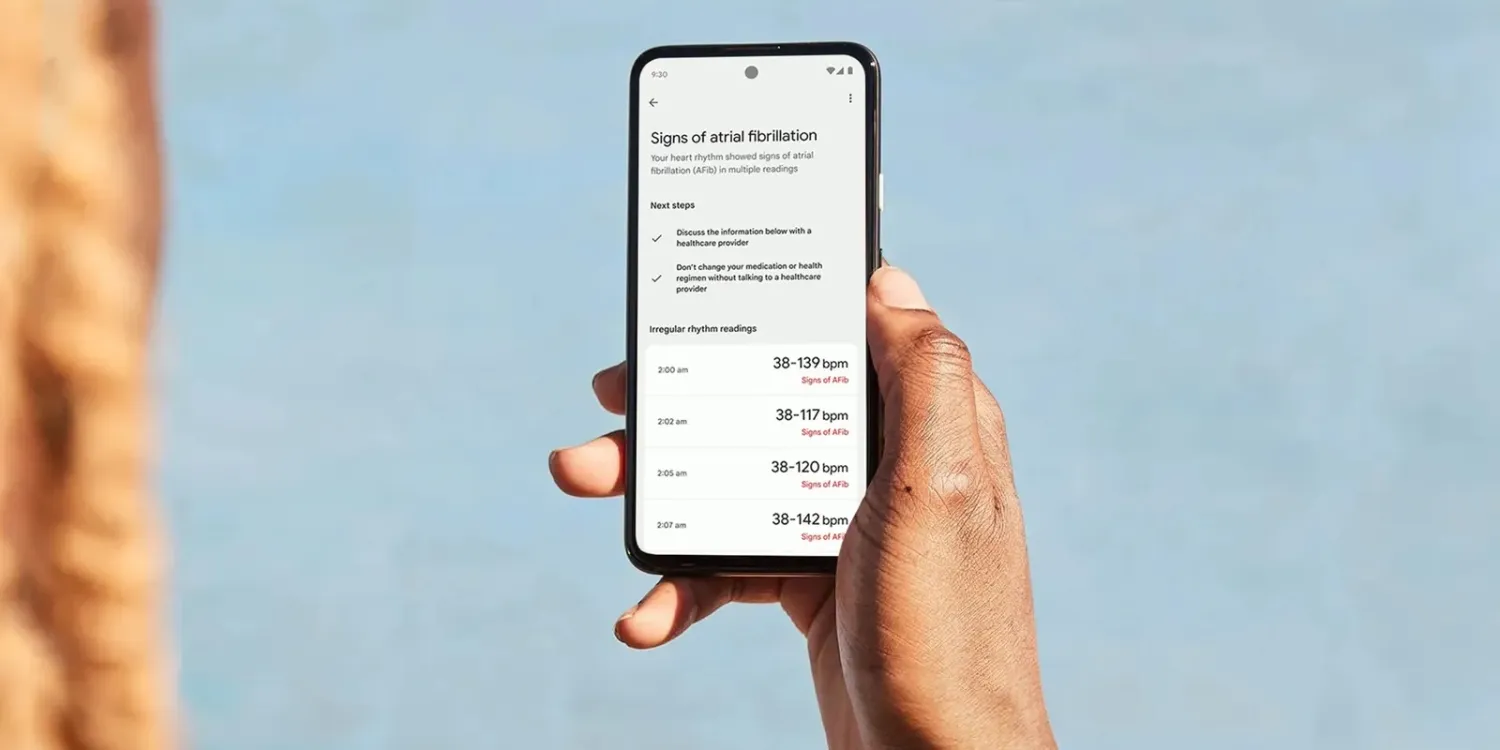10.07.2024
Fitbit’s partnership with Google makes it easier to share AFib data with healthcare providers. The irregular rhythm notification feature allows Fitbit devices to monitor for signs of atrial fibrillation, while Fitbit’s web API provides new AFib endpoints for easier integration and research purposes.
Read on for our latest news!
Thanks to a joint effort between Fitbit and Google, it’s now easier to share AFib data with healthcare providers. A new feature on Fitbit devices, irregular rhythm notifications, and AFib endpoints powered by Fitbit’s web API, allows healthcare facilities to take more effective action to detect and treat arrhythmias early.
Irregular Rhythm Notification (IRN) technology allows Fitbit devices to detect signs of atrial fibrillation (AFib) even when the user is stationary or asleep. This way, they can send a timely warning to the user if signs of an irregular heartbeat are detected. IRN functionality is already available to nearly 10 million people worldwide and represents a major advance in the early detection and treatment of arrhythmias.
The new Fitbit Web API allows healthcare providers and researchers to more easily integrate AFib data into their systems and research projects. These AFib endpoints not only enable more efficient data management, but also facilitate the development of hospital heart health programs and health plan population health initiatives.
For example, in a hospital, based on an IRN notification, they can start appropriate tests, such as event monitoring or echocardiography, to make a more accurate diagnosis and initiate the necessary treatments. The same data can also support public health programs aimed at early detection and treatment of large groups at risk of arrhythmias.
The Fitbit-Google collaboration also provides an opportunity for researchers to gain a deeper understanding of the impact and outcomes of AFib alerts. The easy availability and integration of AFib data opens up new opportunities for scientific research and health policy initiatives related to heart rhythm disorders.
The joint developments between Fitbit and Google represent not only technological advances, but also potentially significant improvements in the prevention and treatment of cardiovascular disease, thus contributing to the management of public health challenges around the world.












































